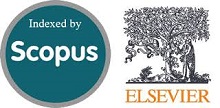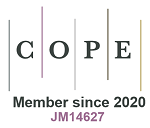SROI with Assurance Can Help Contributors Distinguish Hypocritical Organizations from Genuine NFPs
Abstract
Full Text: PDF
Keywords
References
Mankiw, N. Gregory. “Principles of Economics.” Eighth Edition. Cengage Learning (2016).
Poverty, Inc. DVD, directed by Michael Matheson Miller (Its publication location is only disclosed as in the U.S.: This film is not from an incorporated publisher, 2014).
Green, L, K Ashton, M Dyakova, and L Parry-Williams. “Adding Value to the Use of Health Impact Assessment and Social Return on Investment Technologies.” European Journal of Public Health 30, no. Supplement_5 (September 1, 2020). doi:10.1093/eurpub/ckaa166.341.
Bellucci, Marco, Carmela Nitti, Serena Franchi, Enrico Testi, and Luca Bagnoli. “Accounting for Social Return on Investment (SROI): The Costs and Benefits of Family-Centred Care by the Ronald McDonald House Charities.” Social Enterprise Journal 15, no. 1 (February 4, 2019): 46–75. doi:10.1108/sej-05-2018-0044.
McElwee, Gerard, and Robert Smith. “Towards a Nuanced Typology of Illegal Entrepreneurship: A Theoretical and Conceptual Overview.” Contemporary Issues in Entrepreneurship Research (May 22, 2015): 3–22. doi:10.1108/s2040-724620150000005018.
Gneezy, U., E. A. Keenan, and A. Gneezy. “Avoiding Overhead Aversion in Charity.” Science 346, no. 6209 (October 30, 2014): 632–635. doi:10.1126/science.1253932.
Yankah, Ekow N. “Legal Hypocrisy.” Ratio Juris 32, no. 1 (February 21, 2019): 2–20. doi:10.1111/raju.12234.
Zhao, Hongdan, Jing Xu, Yuanhua Chen, and Wenyuan Sun. “The Employee Attributions of Corporate Hypocrisy in Corporate Social Responsibility: An Explore Research Based on Grounded Theory.” SAGE Open 10, no. 2 (April 2020): 215824402092442. doi:10.1177/2158244020924427.
Christensen, Lars Thøger, Mette Morsing, and Ole Thyssen. “Timely Hypocrisy? Hypocrisy Temporalities in CSR Communication.” Journal of Business Research 114 (June 2020): 327–335. doi:10.1016/j.jbusres.2019.07.020.
Jauernig, Johanna, and Vladislav Valentinov. “CSR as Hypocrisy Avoidance: a Conceptual Framework.” Sustainability Accounting, Management and Policy Journal 10, no. 1 (March 4, 2019): 2–25. doi:10.1108/sampj-05-2018-0141.
Zhigang, Wang, and Zhu Haoming. “Consumer Response to Perceived Hypocrisy in Corporate Social Responsibility Activities.” SAGE Open 10, no. 2 (April 2020): 215824402092287. doi:10.1177/2158244020922876.
Nicholls, Jeremy, Eilis Lawlor, Eva Neitzert, Tim Goodspeed, and S. Cupitt. "A Guide to Social Return on Investment: The SROI Network." Accounting for Value (2012).
Addy, Chris, Maya Chorengel, Mariah Collins, and Michael Etzel. "Calculating the Value of Impact Investing an Evidence-based Way to Estimate Social and Environmental Returns." Harvard Business Review 97, no. 1 (2019): 102-109.
Maier, Florentine, Christian Schober, Ruth Simsa, and Reinhard Millner. “SROI as a Method for Evaluation Research: Understanding Merits and Limitations.” VOLUNTAS: International Journal of Voluntary and Nonprofit Organizations 26, no. 5 (September 9, 2014): 1805–1830. doi:10.1007/s11266-014-9490-x.
Bojer, Hilde. “Distributional Justice: Theory and Measurement.” Routledge (2003).
Schofield, Philip. “Bentham: A Guide for the Perplexed.” Continuum (2009).
Spencer, David. "Love's labor's lost? The disutility of work and work avoidance in the economic analysis of labor supply." Review of Social Economy 61, no. 2 (2003): 235-250. doi:10.1080/0034676032000098237.
Farajzadeh, Zakariya. “Emissions Tax in Iran: Incorporating Pollution Disutility in a Welfare Analysis.” Journal of Cleaner Production 186 (June 2018): 618–631. doi:10.1016/j.jclepro.2018.03.093.
DOI: 10.28991/esj-2021-01253
Refbacks
- There are currently no refbacks.
Copyright (c) 2021 Fuminobu Mizutani






